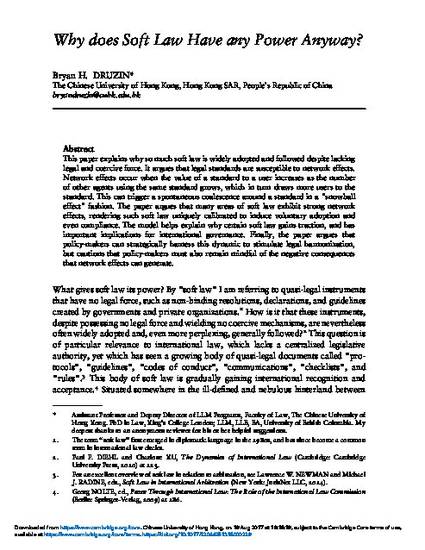
Article
Why does Soft Law have any Power anyway?
Asian Journal of International Law
(2016)
Abstract
This paper explains why so much soft law is widely adopted and followed despite lacking legal and coercive force. It argues that legal standards are susceptible to network effects. Network effects occur when the value of a standard to a user increases as the number of other agents using the same standard grows, which in turn draws more users to the standard. This can trigger a spontaneous coalescence around a standard in a “snowball effect” fashion. The paper argues that many areas of soft law exhibit strong network effects, rendering such soft law uniquely calibrated to induce voluntary adoption and even compliance. The model helps explain why certain soft law gains traction, and has important implications for international governance. Finally, the paper argues that policy-makers can strategically harness this dynamic to stimulate legal harmonization, but cautions that policy-makers must also remain mindful of the negative consequences that network effects can generate.
Keywords
- Soft law,
- network effects,
- international law
Disciplines
Publication Date
2016
Citation Information
Bryan H. Druzin. "Why does Soft Law have any Power anyway?" Asian Journal of International Law (2016) p. 1 - 18 Available at: http://works.bepress.com/bryan_druzin/22/
